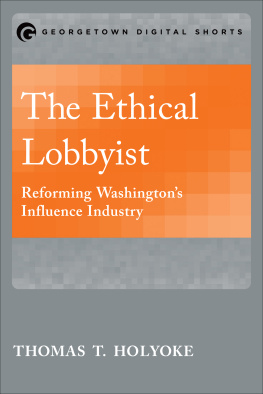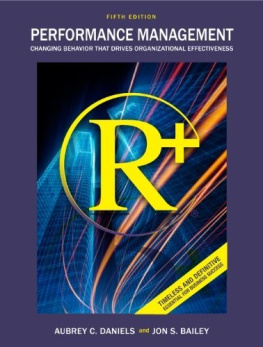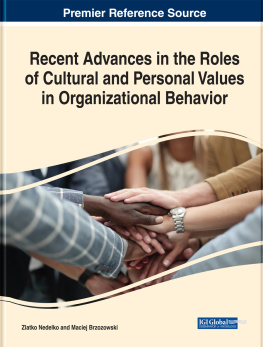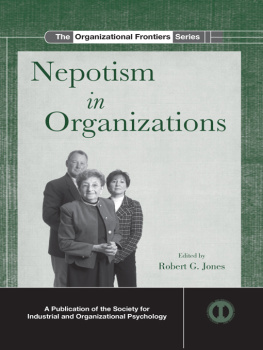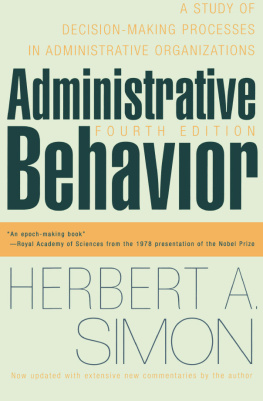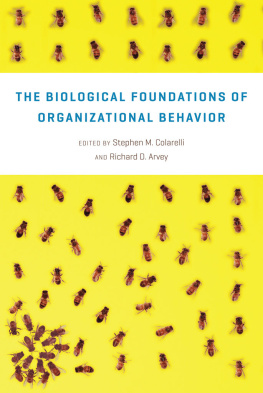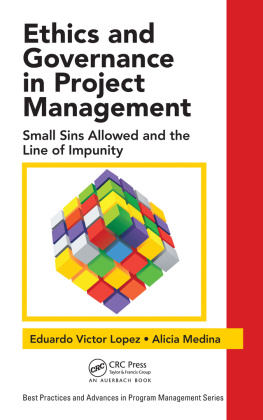Cover
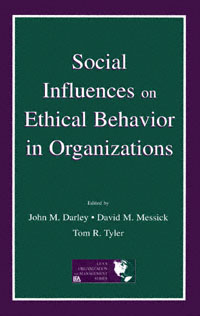
| title | : | Social Influences On Ethical Behavior in Organizations LEA's Organization and Management Series |
| author | : | Darley, John M.; Messick, David M.; Tyler, Tom R. |
| publisher | : | Lawrence Erlbaum Associates, Inc. |
| isbn10 | asin | : | 0805833307 |
| print isbn13 | : | 9780805833300 |
| ebook isbn13 | : | 9780585377209 |
| language | : | English |
| subject | Organizational behavior--Moral and ethical aspects, Social influence. |
| publication date | : | 2001 |
| lcc | : | HD58.7.S637 2001eb |
| ddc | : | 174/.4 |
| subject | : | Organizational behavior--Moral and ethical aspects, Social influence. |
Page i
Social Influences on Ethical Behavior in Organizations
Page ii
LEA's Organization and Management Series
Arthur Brief and James P. Walsh, Series Eitors
Ashforth Role Transitions in Organizational Life: An Identity-Based Perspective
Beach Image Theory: Theoretical and Empirical Foundations
Darley/Messick/Tyler Social Influences on Ethical Behavior in Organizations
Garud/Karne Path Dependence and Creation
Lant/Shapira Organizational Cognition: Computation and Interpretation
Pearce Organization and Management in the Embrace of Government
Thompson/Levine/Messick Shared Cognition in Organizations: The Management of Knowledge
Page iii
Social Influences on Ethical Behavior in Organizations
Edited by
John M. Darley
Princeton University
David M. Messick
Northwestern University
Tom R. Tyler
New York University

Page iv
Copyright 2001 by Lawrence Erlbaum Associates, Inc.
All rights reserved. No part of the book may be
reproduced in any form, by photostat, microform,
retrieval system, or any other means, without prior written
permission of the publisher.
Lawrence Erlbaum Associates, Inc., Publishers
10 Industrial Avenue
Mahwah, NJ 07430
Cover design by Kathryn Houghtaling Lacey |
Library of Congress Cataloging-in-Publication Data
Social influences on ethical behavior in organizations /
edited by John M. Darley, David M. Messick,
Tom R. Tyler.
p. cm.(LEA's organization and management
series)
Includes bibliographical references and index.
ISBN 0-8058-3330-7
1. Organizational behaviorMoral and ethical aspects.
2. Social influences. I. Darley, John M. II. Messick, David
M. III. Tyler, Tom R. IV. Series.
HD58.7 .S637 2001
174'.4dc21
00-057682
CIP
Books published by Lawrence Erlbaum Associates are printed on acid-free paper, and their bindings are chosen for strength and durability.
Printed in the United States of America
10 9 8 7 6 5 4 3 2 1
Page v
Contents
Series Editors' Foreword | ix |
1
Introduction: Social Influence and Ethics in Organizations John M. Darley, David M. Messick, and Tom R. Tyler | |
PART I:
SOCIAL INFLUENCE IN HIERARCHIES | |
2
Ethical Limits on the Use of Influence
in Hierarchical Relationships Herbert C. Kelman | |
3
Toward a More DeontologicalApproach
to the Ethical Use of Social Influence Randall S. Peterson | |
4
The Dynamics of Authority Influence in Organizations
and the Unintended Action Consequences John M. Darley | |
Page vi
5
Confronting Organizational Transgressions Michael E. Roloff and Gaylen D. Paulson | |
6
Procedural Strategies for Gaining Deference:
Increasing Social Harmony or Creating False
Consciousness? Tom R. Tyler | |
7
Exit Ethics: The Management of Downsizing
Among the Russian Officer Corps V. Lee Hamilton | |
PART II:
AWARENESS OF AND RESISTANCE TO
SOCIAL INFLUENCE | |
8
Responses to Perceived Organizational Wrongdoing:
Do Perceiver Characteristics Matter? Marcia P. Miceli, James R. Van Scotter, Janet P. Near, and
Michael T. Rehg | |
9
Training in Ethical Influence Robert B. Cialdini, Brad J. Sagarin, and William E. Rice | |
10
Authority, Heuristics, and the Structure of Excuses Alan Strudler and Danielle E. Warren | |
PART III:
SOCIAL INFLUENCE IN GROUPS,
NETWORKS, AND MARKETS | |
11
Golden Rules and Leaden Worlds: Exploring the
Limitations of Tit-for-Tat as a Social Decision Rule Roderick M. Kramer, Jane Wei, and Jonathan Bendor | |
Page vii
12
Power Asymmetries and the Ethical
Atmosphere in Negotiations Ann E. Tenbrunsel and David M. Messick | |
13
Marketlike Morality Within Organizations Thomas W. Dunfee | |
Author Index, | |
Subject Index | |
Page viii
This page intentionally left blank
Page ix
Series Editors' Foreword
Arthur P. Brief
Tulane University
James P. Walsh
University of Michigan
For too, too long, organizational scientists have not attended adequately to the problems of unethical behavior in and of organizations. Of course, the literature is punctuated with an occasional article, chapter, or book on the topic, but the subject matter is worthy of much more than this. It should be a central concern of the field, because of the human consequences attached to organizations and their representatives engaging, for instance, in fraud and deception, bribery and corruption, marketplace manipulations, and an array of civil liberty violations ranging from racial discrimination and sexual harassment to political repression and marketing of unsafe products. We in the organizational sciences have an ethical obligation to place such unethical behaviors at or very near the top of our research agenda.
Darley, Messick, and Tyler's collection of essays provides the stimulus needed to help move the study of unethical behavior to center stage in the organizational sciences. The book does so by posing one provocative question after another that not only entails a concern for understanding unethical behavior, but also strikes at the very core of how and why organizations function as they do. The book, for example, addresses the asymmetries in power and influence created by hierarchies that give rise to ethical problems; the tactics that might reduce the effectiveness of improper influence attempts; and how the inappropriate use of influence diffuses, for example, through a market. The curious organizational scientist not now interested in ethics surely will be after sampling from Darley et al.'s enticing book.
Next page

